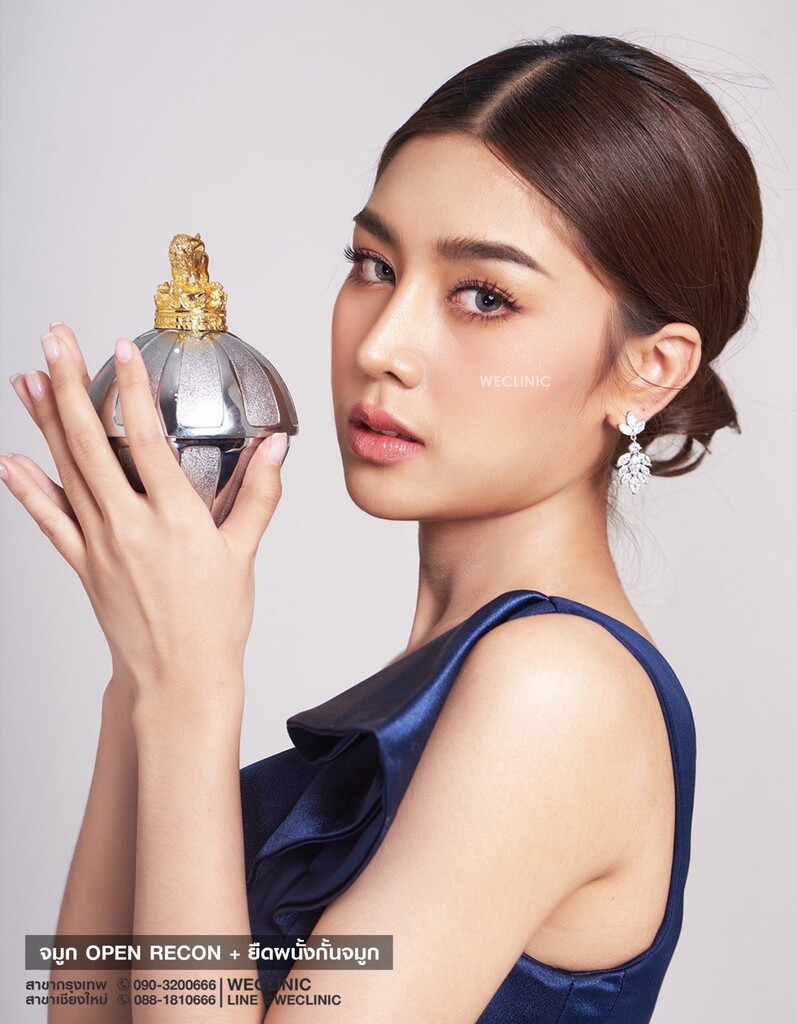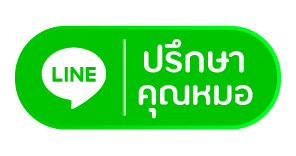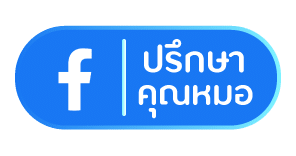Proper self-care after rhinoplasty is essential, and that includes paying close attention to your diet. The food you choose to eat plays a crucial role in supporting the healing process. It can help reduce swelling and bruising, promote tissue repair, and speed up recovery. A faster recovery also means lowering the risk of infection.
At WE Clinic, we want to guide you on what to eat after rhinoplasty to nourish your body and encourage faster healing. We will also cover foods you should avoid during the initial recovery period. Let’s take a closer look at what’s best for your post-surgery diet, as well as the meals you may need to skip for now.
What to Eat After Rhinoplasty?
The question “What to eat after rhinoplasty?” is one of the most common concerns after nose surgery. Many patients worry about swelling or inflammation. At WE Clinic, we provide simple guidelines to help you recover smoothly and safely.
Can I Eat Eggs After Rhinoplasty?

Some traditional beliefs suggest that eating eggs may slow down the healing process or cause hypertrophic scar formation, but this is a misconception. In reality, eggs are safe to eat after rhinoplasty and can even support your recovery.
Eggs are an excellent source of protein, which plays an important role in healing surgical wounds, repairing tissues, and reducing inflammation. Including eggs in your diet may help your nose recover more quickly and strengthen the healing process. However, moderation is key — about 2–3 eggs per day is recommended to gain the benefits without overconsumption.
Can I Eat Chicken After Rhinoplasty?
Yes, you can eat chicken after rhinoplasty. Chicken is a good source of protein, which supports tissue growth and helps repair damaged areas during the healing process. Including chicken in your meals can therefore be beneficial for recovery.
However, during the early stages when the wound is still fresh and not fully closed, it’s best to eat chicken in moderation. Excessive protein intake may not always benefit the body and could place unnecessary stress on the healing process. Balance is key; moderate portions will provide the nutrients you need without overloading your system.

What Fruits Can I Eat After Rhinoplasty?

After rhinoplasty, your body produces a large amount of free radicals as part of the healing process. To counter this, it is recommended to eat dark-colored fruits such as pomegranate, cherries, blueberries, strawberries, and raspberries.
These fruits are rich in antioxidants, which help neutralize free radicals and reduce cellular damage. They also strengthen capillaries and support healthy blood circulation, which is essential for reducing swelling and speeding up recovery after nose surgery. Including these fruits in your diet can make your healing smoother and more effective.
Does coconut juice promote faster recovery after nose surgery?

Yes, coconut water is highly recommended after rhinoplasty. It is well known for supporting wound healing and reducing swelling and bruising, whether from minor or major surgery. Drinking coconut water can help accelerate recovery and make the healing process smoother.
Hydration plays a key role in this process. In addition to coconut water, make sure to drink plenty of plain water throughout the day — ideally around 1.5 to 2 liters of fluids daily — to keep your body fully hydrated and support optimal healing.
Beyond its healing benefits, coconut water also promotes healthier skin thanks to its natural vitamins and minerals. For the best results, it is recommended to drink fresh coconut water directly from the fruit, as this maximizes its effectiveness in reducing inflammation and swelling after surgery.
Can You Eat Seaweed After Rhinoplasty?
If you love eating seaweed, you’ll be glad to know that it can be very beneficial after rhinoplasty. Seaweed is packed with essential minerals, dietary fiber, and iron, all of which support overall recovery.
One of its key benefits is helping the body regulate temperature and improve circulation, which in turn reduces swelling and bruising. Because of these properties, seaweed is considered a safe and nutritious food to enjoy after nose surgery, making it a healthy addition to your post-rhinoplasty diet.

What Foods Should You Avoid After Rhinoplasty?
Diet plays an important role in both internal and external wound healing after rhinoplasty. Choosing the right foods can help reduce bruising, speed up recovery, and improve overall health.
However, that doesn’t mean every type of food is suitable during recovery. Certain foods may interfere with the healing process, increase swelling, or even raise the risk of complications. To ensure your rhinoplasty results are safe and long-lasting—without the need for revision surgery it’s important to know what foods to avoid in the weeks following your procedure.
If you’d like to learn more about the symptoms to watch out for after rhinoplasty, you can read our detailed guide here: 12 อาการหลังเสริมจมูกมีอะไรบ้าง

Can You Eat Seafood After Rhinoplasty?

For patients who have recently undergone rhinoplasty, it is best to avoid all types of seafood in the first month of recovery. This includes marine fish such as salmon and mackerel, as well as shrimp, crab, and shellfish.
The main reason is to prevent potential allergic reactions. Many people are unaware they may be allergic to certain types of seafood, and if an allergic reaction occurs during the early healing phase, it can be far more serious. Such reactions may lead to inflammation, infection, or symptoms like itching, swelling, and redness around the surgical site.
To ensure a safe and smooth recovery, it’s strongly recommended to avoid seafood until your nose has fully healed.
Can You Eat Durian After Rhinoplasty?
From a medical perspective, there is currently no scientific research confirming that durian directly affects rhinoplasty recovery. However, for safety reasons, it is generally advised to avoid durian in the early healing phase.
Some patients have reported slower wound healing after eating durian, including delayed closure of incisions and increased wound irritation compared to normal cases. While not medically proven, avoiding durian during the first stage of recovery may help reduce unnecessary risks and support a smoother healing process.

Can You Drink Coffee After Rhinoplasty?
In the early recovery period after rhinoplasty, it is recommended to avoid coffee and other caffeinated drinks. Caffeine may disrupt your sleep, making it harder to get enough rest. Quality sleep is essential because it allows the body to repair itself, reduce swelling, and promote faster wound healing.
By skipping coffee during the first stage of healing, you give your body the best chance to recover smoothly and effectively. Once your recovery is stable, you may reintroduce coffee in moderation with your doctor’s approval.
Can You Eat Barbecue Pork or Hot Pot After Rhinoplasty?
It is best to avoid Korean barbecue or hot pot during the early recovery phase after rhinoplasty. These meals often contain high levels of sodium from dipping sauces and broths, which can cause prolonged swelling.
In addition, the smoke and heat from grilling may increase the risk of inflammation. Eating barbecue also usually requires chewing tougher meats, which may put unnecessary pressure on your nose structure while it is still healing.
For a safer and smoother recovery, it is better to choose soft, easily digestible foods that are not too hot. This will help reduce irritation and support faster wound healing.

Can You Eat Spicy Food After Rhinoplasty?
There is no direct medical evidence that spicy food negatively affects surgical wounds after rhinoplasty. However, it is generally recommended to avoid very spicy dishes during the recovery phase, as spicy foods can irritate the nasal passages and temporarily increase blood pressure.
The reason is that spicy food can increase nasal secretions or cause a runny nose. If these secretions come into contact with the surgical site, they may irritate the wound, increase the risk of inflammation, and potentially lead to infection. For this reason, avoiding spicy foods during the initial healing stage is the safer choice to ensure smooth recovery.
Can You Eat Noodles After Rhinoplasty?

There are no strict restrictions against eating noodles after rhinoplasty, as the noodles and most common toppings do not directly affect the surgical site. This makes noodle dishes generally safe to eat during recovery.
However, certain precautions are necessary. Avoid adding excessive seasoning such as very spicy chili, too much salt, or overly sour flavors. In addition, drinking very hot broth may trigger nasal secretions or create heat around the nose, which can increase swelling, irritation, or delay the healing process. For safer recovery, it is best to enjoy noodles with mild seasoning and allow the soup to cool slightly before eating.
Can You Eat Fermented Fish After Rhinoplasty?
Fermented foods such as fermented fish and other pickled or preserved dishes should be avoided after rhinoplasty. These foods are often not fully cooked and may contain bacteria, increasing the risk of infection at the surgical site.
They may also trigger nasal symptoms such as swelling, congestion, or a runny nose, which can interfere with healing. For a safe recovery, it is best to avoid fermented foods for at least one month after nose surgery.
Can You Drink Alcohol After Rhinoplasty?

Alcoholic beverages should be strictly avoided after rhinoplasty, especially during the first month of recovery. When alcohol enters the body, the ethyl alcohol is absorbed and distributed throughout the system, creating toxic effects on various organs.
One major concern is that alcohol can damage cells responsible for repairing surgical wounds. It also reduces blood flow to the operated area, which may result in poor healing, delayed wound closure, or even tissue damage. In addition, drinking alcohol significantly increases the risk of infection.
For these reasons, it is strongly recommended to avoid alcohol for at least one month after rhinoplasty to ensure safe, smooth, and effective recovery.
What to Eat After Rhinoplasty for Faster Recovery
There are nine main types of foods and drinks that can speed up healing and help surgical wounds recover more quickly.
- Water plays a vital role in the wound-healing process. When the body stays hydrated, skin cells can move more effectively from the edges of the incision to cover and close the wound. This promotes faster tissue repair and reduces the risk of complications. For best results, it is recommended to drink at least 8–10 glasses of water per day to meet your body’s needs and support smooth recovery after rhinoplasty.
- Protein is one of the most important nutrients for recovery after rhinoplasty. Following surgery, your body requires higher amounts of protein to repair damaged tissues and generate new cells. Adequate protein intake can speed up wound healing, reduce inflammation, and improve skin regeneration from within. For best results, choose protein sources that are easy to digest, such as boiled eggs, chicken, fish, beans, or plant-based protein. These options allow the body to absorb nutrients more efficiently and support faster, healthier recovery.
- Good fats are another essential nutrient for recovery after rhinoplasty. They can be found in olive oil, rice bran oil, peanut oil, and nuts such as almonds. These healthy fats play a crucial role in building and repairing tissues, while also helping wounds close and heal more effectively. Including sources of good fats in your diet after surgery not only supports the healing process but also provides long-lasting energy for the body. Choosing healthy oils and nuts in moderation can therefore make recovery smoother and more balanced.

- Iron and Zinc Rhinoplasty can cause some level of blood loss, which makes iron and zinc particularly important during recovery. These minerals play a vital role in wound healing, tissue repair, and boosting the immune system to protect against infections. For optimal recovery, it is recommended to consume at least 15 mg of iron and zinc per day. Good dietary sources include fish, eggs, seafood, green leafy vegetables, and soy products. Adding these foods to your post-surgery diet can significantly speed up healing and support overall recovery.
- Vitamin C is essential for post-rhinoplasty recovery as it supports collagen production, accelerates wound healing, and strengthens blood vessel walls. It also helps reduce swelling, bruising, and inflammation, making it a key nutrient for a smoother recovery.The body should receive at least 100–200 mg of vitamin C per day during the healing phase. Excellent sources include fruits and vegetables such as oranges, guava, papaya, kiwi, and broccoli. Adding these to your daily diet can significantly improve your body’s ability to recover after nose surgery.

- Centella Asiatica (Gotu Kola) commonly known as gotu kola, is highly beneficial for recovery after rhinoplasty. It stimulates collagen synthesis, helping to rebuild connective tissues and repair damaged blood vessels. This accelerates the formation of new tissue and improves the elasticity of newly regenerated skin. Additionally, gotu kola enhances blood circulation in the capillaries and improves oxygen exchange within tissues. These effects help reduce swelling and inflammation, making it a powerful natural aid for faster wound healing and smoother recovery.

- Pumpkin is an often-overlooked food that can be very beneficial for recovery after rhinoplasty. It naturally helps reduce swelling and bruising because it is rich in beta-carotene, vitamin A, and potassium. These nutrients work together to lower inflammation, flush out excess fluids, and accelerate wound healing. Eating pumpkin also supports new tissue formation, helping the body recover more quickly while keeping the skin looking fresh and healthy. During the recovery phase, pumpkin soup or steamed pumpkin are excellent choices to include in your diet, as they are gentle on the stomach and promote smoother healing.

- Yogurt is an excellent food choice for patients recovering from rhinoplasty. It contains probiotics, or “good bacteria,” that help balance the immune system, reduce inflammation, and protect against infections. This makes yogurt particularly helpful in minimizing swelling and supporting faster healing. In addition, yogurt provides important minerals such as zinc and calcium, which are essential for new cell formation and wound repair. Including yogurt in your diet during recovery can therefore enhance skin regeneration and improve the overall healing process after surgery.

- Bananas are an ideal food for patients recovering from rhinoplasty, especially in the first few days when hard or chewy foods should be avoided. Their soft texture makes them easy to eat without much chewing, reducing strain on the nose during recovery. Bananas are also rich in potassium and essential vitamins, which help reduce inflammation, support the body’s natural healing process, and minimize swelling. Adding bananas to your diet provides both comfort and nutrition, making recovery smoother and less stressful.
Further reading : How to Take Care of Yourself After Rhinoplasty for a Beautiful and Safe Result (Q&A)
Conclusion
In summary, after rhinoplasty there are certain foods you should avoid, but there are also many that can safely be enjoyed and even support your recovery. Choosing the right diet can help your body repair tissues more effectively and speed up wound healing.
Beyond diet, maintaining proper hygiene and following your surgeon’s post-operative instructions are equally important. Attending all follow-up appointments ensures that your healing stays on track. By carefully following these recommendations, your swelling will subside more quickly, and you’ll be ready to show off a beautifully refined nose in just a short time.










สำหรับผู้อ่านทุกท่านที่มีข้อสงสัยเพิ่มเติม ทีมแพทย์ We Clinic ยินดีให้คำปรึกษาฟรี
โดยไม่มีค่าใช้จ่าย หรือสามารถปรึกษาหมอทาง facebook หรือ Line ได้ที่นี่เลยครับ